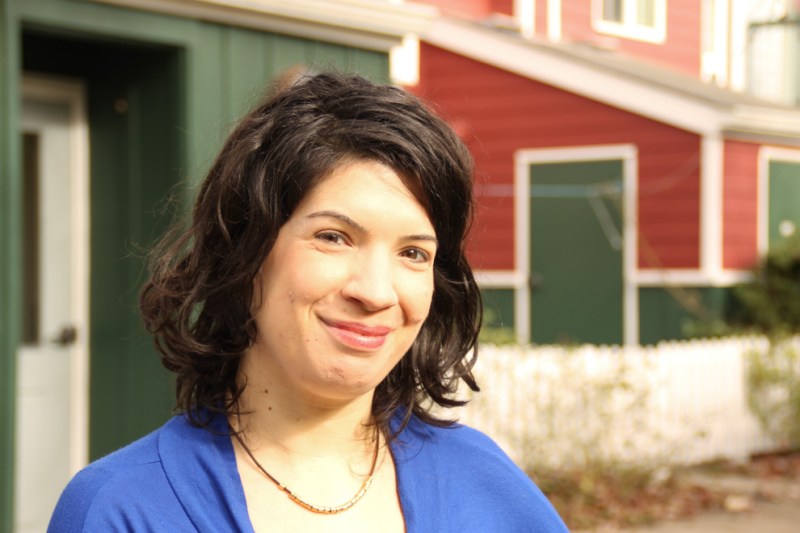
Shiri Sadeh-Sharvit is a clinical psychologist from Israel and visiting instructor in psychiatry and behavioral sciences at the Eating Disorders Research Program in the Department of Child and Adolescent Psychiatry. Her most recently published paper focuses on mothers with eating disorders, and she has received the President’s Doctoral Fellowship of Excellence from Bar Ilan University for her work.
The Daily spoke to Sadeh-Sharvit about the research she is working on now at Stanford and what she hopes to accomplish.
The Stanford Daily (TSD): Can you describe the President’s Doctoral Fellowship of Excellence award you recently received and what your motivations were for beginning your project?
Shiri Sadeh-Sharvit (SSS): As a young psychologist, I worked in an eating disorders inpatient unit, and while I expected that most of the patients with whom I would interact would be adolescents between 14 and 19 years old, I was surprised to realize how many adult women were suffering from eating disorders or coping while at the same time coping with the additional responsibilities of child rearing. The fact this this phenomenon exists and the number of patients that have those characteristic demographics surprised me. I was interested in learning what are the specific characteristics and needs that these parents may have.
I received the award from Bar Ilan University and started this program with a topic of mothers with eating disorders. I studied 68 mothers who have eating disorders and toddlers. I conducted interviews with the mothers, and the results of those interviews have been published. We were not surprised to find out that many of those mothers felt that there were similarities between the way that they eat, their relationships with food in regards to their own eating and the way they treat their children’s eating.
The findings of this study triggered us to design the parent-based intervention program which is what I’m working on here at Stanford with Dr. James Locke. A year ago we received the Child Health Research Institute Award from Lucile Packard Children’s Hospital to study parenting programs for mothers with eating disorders that [are] designed to help them in their efforts to feed their children better.
TSD: How do you believe your findings from this study have contributed to the greater literature?
SSS: I think that that the biggest studies have already demonstrated that mothers with eating disorders have greater feeding problems with their children. Some other studies demonstrate that such feeding problems do exist among children of mothers with eating disorders.
However, this is one of the first studies to really ask the mothers and give room to the way they describe their concerns and dilemmas and in general. Most treatments in eating disorders rely heavily on language and words and on exchanges between the patient and the therapeutic team. That’s why it was especially important for us to learn from the mothers the way that they describe their own perception of the problem in order to give them a voice and to design tailored intervention programs that fit their needs and not what us clinicians think that they need.
TSD: Could you talk a little bit more about your primary interests in psychology research?
SSS: My research focus is about preventive interventions and programs for people in high risk of developing a full-blown disorder. One of my main interests is how to work with families to make sure that the developmental trajectories of their children emotionally, socially and psychologically [are] healthy. That is why I love my work and my research with mothers and parents with eating and weight disorders.
Psychological research is so important [because] it helps us really describe and adapt our understanding to the characteristics and needs of logical explanations.
TSD: Are you currently working on any studies or programs that involve mothers with a history of or current eating disorders?
SSS: Now at Stanford University, we are doing a parent-based prevention program for mothers with eating disorders who have children between ages 1 to 5 years old. We’re testing a model that we have for a short-term focus that is done with each family separately in which we work with parents feeding related concerns and dilemmas and additional questions about their parenting that they would like to receive support in.
This program is delivered as part of the study and is given at no cost. A child psychologist meets with parents in two locations, either at Stanford University or in Berkeley, and we hope that the model that we have for this tailored intervention can support parents and families in their decision-making around feeding.
In my vision, I would like at the end to see how we ultimately develop a program for parents with a history of eating disorders that will support them before conceiving children, throughout the pregnancy and along their children’s development to support specific developmental milestones that can be challenging for parents.
TSD: What would you ideally like to see come out of the research you are doing, and what effects do you hope it will have on the community of mothers with eating disorders?
SSS: One of the most common experiences that I have with my patients is that they are really surprised to hear that they are not the first people to tell me those kinds of dilemmas and concerns. I have worked with dozens of families so far with children in the same age range, and it really allows me to understand them better and also tell them to be more forgiving and accepting to their difficulties.
I hope that when parents read the final paper, at least some of them will feel like they’re reading about themselves, and since the paper was written in a very accepting state of mind, I hope that they will also be able to accept those difficulties and have less self-judgment and self-blame because many parents in general feel that way.
I hope that this will affect policymakers and public health professionals and medical teams to understand better what could be the difficulties and the challenges of parents with histories of eating disorders.
Contact Angelique Dakkak at angeldak ‘at’ stanford.edu.
